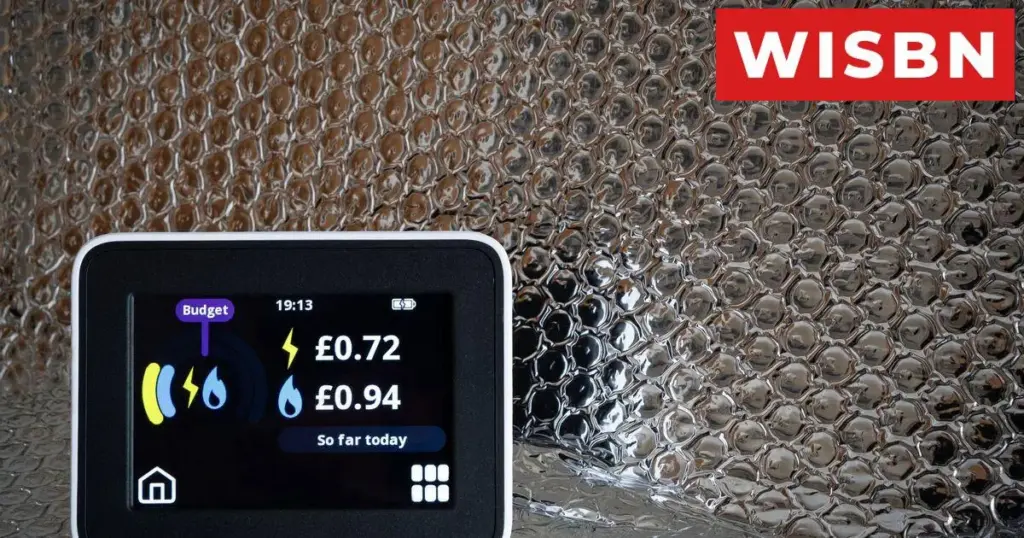Households struggling with surging energy costs could reduce their bills by an average of £255 a year by installing batteries, a pioneering trial has found. The company which ran the pilot in partnership with Coventry City Council said that scaling the initiative to fuel-poor homes across Britain would help the government meet its election commitment to shave £300 off their bills — a goal many see as difficult to achieve. Five million households are classed as being in “deep fuel poverty” — spending more than 20% of their income on energy. Meanwhile, the government is working to boost the electricity system’s flexibility as intermittent renewables replace gas.
During the trial, 18 households struggling with bills had batteries fitted, which stored electricity during times when power was cheap because demand was low. Residents could then draw on that stored battery energy whenever needed. This setup, combined with a tariff that rewarded people for using electricity in off-peak windows, produced average savings of £255 per year, rising to £415 for larger families, the study found.
“It has really made a significant difference to my energy bills, and I now feel reassured and very grateful to be part of the scheme,” one participant said.
The batteries would also help spread electricity demand through the day, avoiding peak-time strain around teatime — a challenge the National Grid faces without gas-fired power, which can be ramped up and down to meet demand. The company, which supplies the battery installations, is eager for the programme to be rolled out nationally.
The company commissioned an analysis that showed £600m of government investment could save 250,000 vulnerable households a combined £753m annually. As part of The Home Age report, it worked with Development Economics to estimate the advantages of a nationwide rollout of batteries and time-of-use tariffs. Based on the savings from the Coventry pilot, it projects:
- If every household in the UK in fuel poverty received the upgrades, bills for these people would fall by £753m a year, cumulatively
- Batteries and time-of-use tariffs in every UK home, excluding flats, would yield total energy bill savings of around £5.45bn a year
- The nation’s energy consumption would fall by 3,174 GWh per year (roughly the annual power use of all homes in Greater London combined)
- For each £1m saved through reduced energy costs across the country, the public finances would gain an estimated £186,000 in Gross Value Added (GVA) and nine jobs would be created
With the government under fiscal pressure, it is uncertain where this funding would come from. Nevertheless, the company argued the investment would give ministers a quick route to deliver on their election promise. A spokesperson said: “Government has pledged a £300 reduction in energy bills by 2030… as just one example, combining batteries and time of use tariffs for the most vulnerable UK households could provide tangible financial savings averaging £255 per home, but keep benefiting residents for decades.”
Yet Liam Hardy, of the thinktank Green Alliance, suggested it might be “better value for money to deploy large-scale batteries in the grid, rather than in people’s homes”. Individual home batteries cost roughly £7,000, though they have the advantage of “being deployable very quickly, even tomorrow”, he added, and would deliver even larger savings when combined with an electric heat pump.
Ramona Vlasiu, Chief Operating Officer for the company, said: “The cost of energy in the UK is too high and as winter approaches, millions of households, especially the most vulnerable, will be worried about their bills in the months ahead. Financial support packages such as the Winter Fuel Payment have a part to play in addressing the problem, but we believe the long-term solution is to put people at the centre of the energy transition. That means upgrading their homes with new technology, such as batteries, and giving them control over the energy they use. Doing so will not only reduce energy bills in the short term, but also create a national energy system with a lasting positive effect by cutting fuel poverty, creating jobs and boosting the economy.”
Jess Ralston, from the thinktank Energy and Climate Intelligence Unit, called the government’s upcoming Warm Homes Plan “an opportunity to set out how it will encourage those who can afford upgrades to invest, and how it plans to make sure low-income households can access the benefits that net zero tech offer”.
The company has also launched a new online portal intended to simplify and speed up the process for those applying for free energy efficiency measures for their homes.
Building on the already established Grant Finder which recommends the most suitable funding solution for people, the new ‘Green Funding Solutions Portal’ is specifically aimed at those potentially eligible for support through the government’s two new schemes – the ‘Warm Homes: Local Grant’ and the ‘Warm Homes: Social Housing Fund’. Both these schemes are intended to retrofit energy efficiency improvements into people’s homes, reducing fuel poverty and energy bills while helping the UK meet its carbon reduction targets. Other benefits include people being able to upload any documentation needed to confirm their eligibility, and tracking all their appointments in one place – from application to technical survey to installation across multiple measures. And further upgrades to the portal are planned over the coming months.
Vijay Tank, Chief Commercial Officer, E.ON Infrastructure Solutions, said: “As part of our mission to make homes, businesses and entire communities across the country more sustainable, it’s vital we continue to explore and deliver new ways to make this process as simple and straightforward as possible. Our new Green Funding Solutions Portal is a prime example of how we’ve combined our expertise, passion and innovative approach to provide a digital solution that could help even more people access the support they’re entitled to. This will make homes warmer, more comfortable and more sustainable, while also helping to lower energy bills and improve the nation’s housing stock now and into the future.”
See also: Al Gore’s AI System Now Monitors Deadly Soot Pollution Sources



